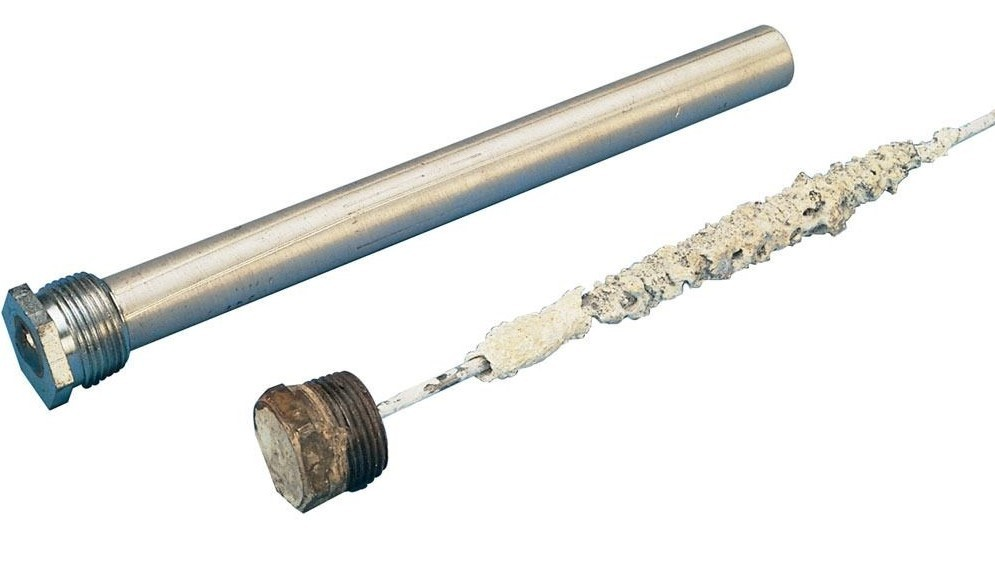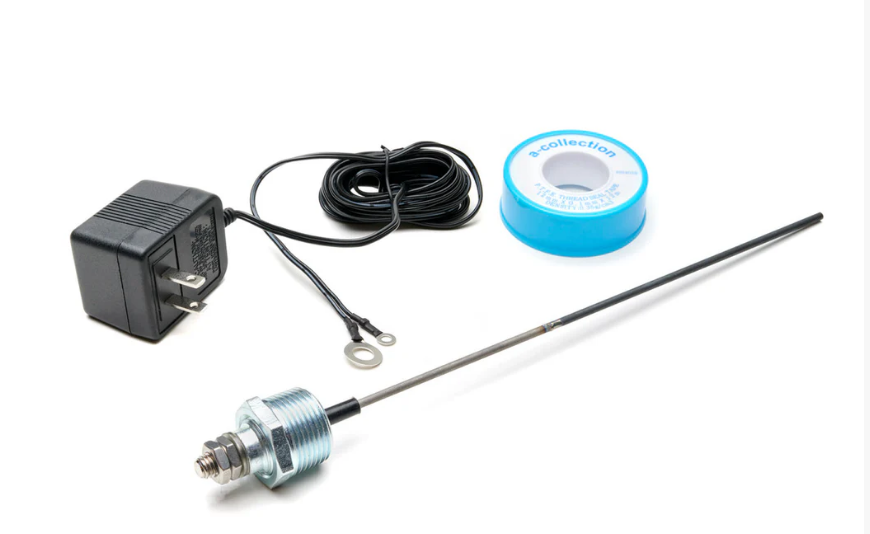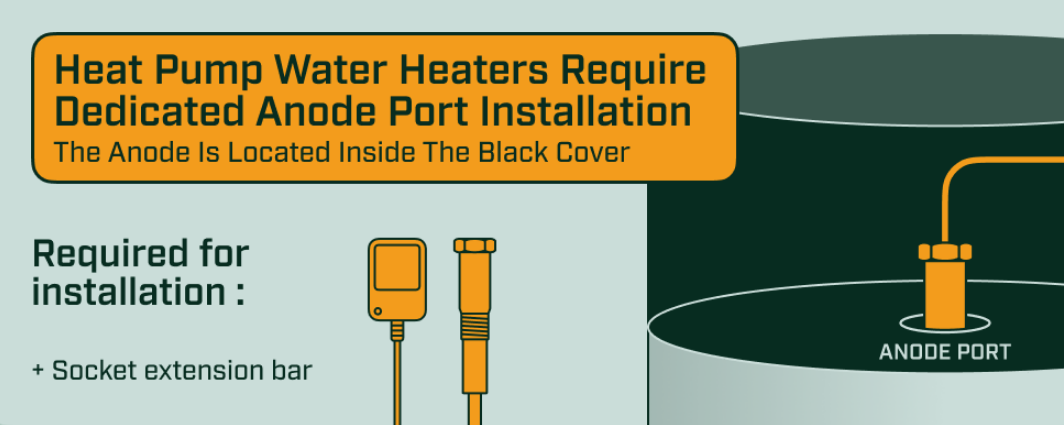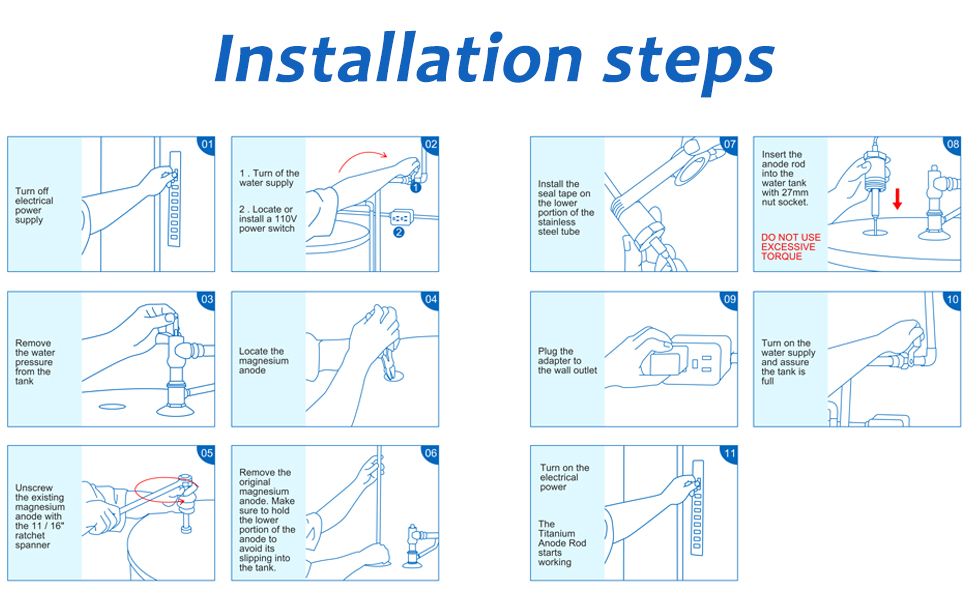Are you tired of that persistent rotten egg smell emanating from your hot water? Do you worry about the longevity of your water heater tanks? You're not alone. Many homeowners face these challenges, often unaware that the solution lies within their water heater itself. For years, the standard defense against tank corrosion and unpleasant odors has been the traditional sacrificial anode rod. However, a revolutionary advancement, the powered anode rod, is changing the game, offering superior protection against corrosion and effectively eliminating that dreaded sulfur smell.
This comprehensive guide will walk you through everything you need to know about powered anode rods. We'll explore how they work, why they outperform traditional options, and how they can save you money and hassle in the long run. Get ready to discover how this innovative technology can transform your home's hot water experience.
The Silent Threat: Corrosion in Your Water Heater
Your water heater is a vital appliance, but its steel tank is constantly battling corrosion. This electrochemical process occurs when water, acting as an electrolyte, interacts with the metal of your tank. Over time, this leads to rust, leaks, and ultimately, premature tank failure. Factors like water quality and temperature can accelerate this destructive process.
The Limitations of Traditional Sacrificial Anode Rods
For decades,
sacrificial anode rods have been the go-to solution for corrosion prevention. Made from reactive metals like magnesium or aluminum, these rods sacrifice themselves to protect the steel tank through a process called cathodic protection. They corrode instead of your tank, extending its life. However, these traditional sacrificial anodes have significant drawbacks:
•Limited Lifespan: They deplete over time, typically requiring replacement every 3-5 years. Once gone, your tank is vulnerable.
•Odor Issues: In areas with high sulfate levels, magnesium anodes can react with bacteria to produce hydrogen sulfide gas, causing that tell-tale rotten egg smell or sulfur smell in your hot water.
The Game Changer: How Powered Anode Rods Deliver Superior Protection
The powered anode rod is a modern marvel in water heater technology. Unlike sacrificial rods, it uses a small, continuous electrical current from an external power supply to provide active cathodic protection. Constructed from durable materials like titanium with a mixed metal oxide (MMO) coating, the powered anode rod doesn't corrode. Instead, it creates a protective electrical field within the tank, actively preventing rust and extending your water heater's life significantly.
When a powered anode rod is installed in a water heater, it constantly monitors the tank's electrical potential, adjusting its output to ensure optimal protection against corrosion regardless of changes in water quality or temperature. This consistent, active defense is a major upgrade from the passive, diminishing protection offered by traditional anodes.
Eliminate That Nasty Hot Water Odor for Good
One of the most compelling reasons to switch to a powered anode rod is its ability to banish the sulfur smell or rotten egg smell from your hot water. The electrical current disrupts the environment where sulfate-reducing bacteria thrive, preventing them from producing hydrogen sulfide gas. This means no more unpleasant smell in hot water, just clean, fresh-smelling water every time. This is a significant advantage over magnesium or aluminum rods, which can sometimes worsen the odor problem.
Why a Powered Anode Rod is Your Water Heater's Best Friend
The benefits of installing a powered anode rod are clear and impactful:
•Dramatically Extended Water Heater Lifespan: Enjoy years of extra life from your water heater tanks thanks to continuous, active protection against corrosion. This means fewer costly replacements and more savings.
•Odor-Free Hot Water: Say goodbye to the sulfur smell and rotten egg smell. Brands like Corro-Protec powered anode and Corro-Protec anodes are particularly effective at eliminating water heater odor.
•Minimal Maintenance: Forget frequent anode rod replacements. Powered anode rods are designed to last 20 years or more, drastically reducing your maintenance burden.
•Unwavering Performance: Regardless of your water quality, a powered anode rod provides consistent cathodic protection, ensuring your tank is always safeguarded.
•Eco-Friendly Choice: By preventing premature water heater failure and reducing the need for replacements, powered anode rods contribute to less waste.
•Broad Compatibility: Whether you have Bradford White water heaters, an AO Smith unit, or another water heater type, there's likely a compatible powered anode rod solution.
Installation: What You Need to Know
Installing a powered anode rod typically involves replacing your existing anode rod. While many manufacturers, including those of Corro-Protec powered anode rods, provide clear instructions for DIY installation, it does require basic plumbing knowledge and access to an electrical outlet for the power supply. If you're not comfortable with plumbing or electrical work, professional installation is always recommended to ensure safety and proper function.
While the initial cost of a powered anode rod might be higher than a traditional one, consider it an investment. The extended lifespan of your water heater, coupled with the elimination of odors and reduced maintenance, offers significant long-term savings and invaluable peace of mind.
The Smart Choice for Your Home
In summary, the powered anode rod is a game-changer for home water heating. It offers a superior, sustainable, and highly effective solution for protecting your hot water heater from corrosion and eliminating unpleasant odors. If you're looking to extend the life of your water heater tanks, improve your water quality, and finally get rid of that persistent water heater odor or rotten egg smell, a powered anode rod is a smart investment. It's a clear upgrade from traditional sacrificial anodes, ushering in a new era of proactive home maintenance and ensuring your hot water system delivers clean, odor-free water for years to come.



